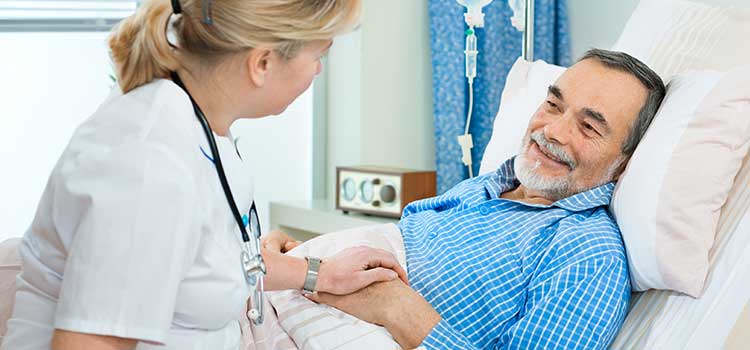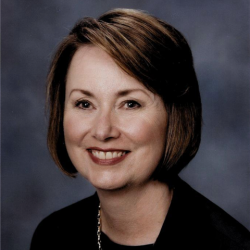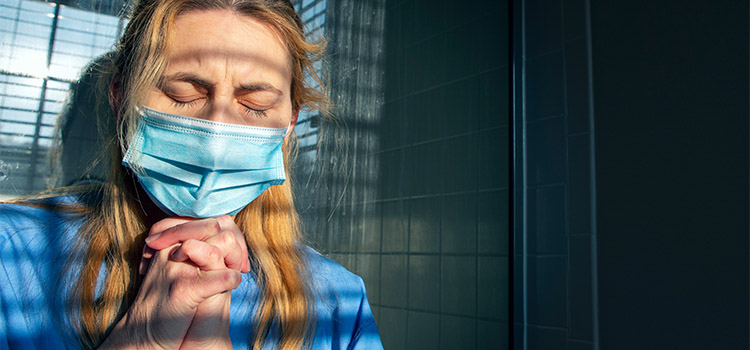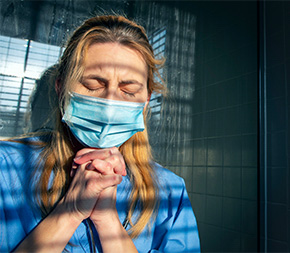Explore Related Nursing Specialties
Faith Community Nurse Career Guide
Faith Community Nurse at a glance
Where you’ll work: Church congregations and parishes, hospitals and health systems, long-term care facilities, community service organizations, private faith-based schools and colleges.
What you’ll do: Provide holistic care that integrates faith and spiritualism into the healing process. You act as a liaison between the religious community you work in and the healthcare team.
Minimum degree required: You will need at least an ADN or BSN.
Who it’s a good fit for: A faith community nurse should have a strong belief in their own faith and be committed to helping others by incorporating the patient’s faith into their care.
Job perks: Faith community nurses get to incorporate spirituality into their practice more than other nursing specialties.
Opportunities if you pursue a higher degree or certification: Although there is no professional certification for faith community nurses, there are certificate courses that can demonstrate your proficiency in the field. Having a certificate could make it easier to land faith community nurse jobs.
Median annual salary: $86,070
Parish nursing, broadly known as faith community nursing, is holistic care that integrates treatment of a person’s illness with their spiritualism and faith. For the right person, like Joy Eastridge, RN, BSN, and a longtime faith community nurse, it’s a fulfilling position and an opportunity to make a difference in the lives of others every day.
“One of the beautiful things about parish nursing is that there is not a typical day,” she says. “Every day is different—and some more challenging than others.”
In This Article
How to Become a Faith Community Nurse | Job Description | Education | Online Programs | What to Look for in a School | Licensure | Gain Experience | Certificate in Faith Community Nursing | Salary and Career Outlook | Professional Resources
Parish nurses are also known as congregation nurses, but the all-inclusive name for this role is faith community nurse. These nurses bring together mind, body, and spirit to promote healing and a connection to a higher power.
While many faith community nurses have full-time roles, it’s not unusual for them to work as professional nurses while they volunteer or work part time with a faith organization, says Eastridge, who serves as the parish nurse for First Broad Street United Methodist Church in Kingsport, Tennessee.
“The combination of working as a volunteer and concurrently as a paid nurse in a clinical setting is pretty common,” she says.
How to Become a Faith Community Nurse
You’ll find faith community nurses serving the needs of Catholic, Islamic, Protestant, Jewish, Buddhist, non-denominational, and many other faith communities. If you think becoming a faith community nurse is the right role for you, here are steps to pursue this nursing field:
Determine what level of education you’ll need.

Most employers and religious organizations require a Bachelor of Science in Nursing (BSN), but there may be some that hire nurses with an Associate Degree in Nursing (ADN).
Graduate from an accredited nursing program.

If your program is not accredited, you won’t be eligible to take the national licensing exam to be a registered nurse (RN).
Become licensed.

After you pass the licensing exam, apply to your state nursing board for licensure.
Gain on-the-job nursing experience.

In most cases, an aspiring faith community nurse will need general nursing experience before specializing.
Consider completing a certificate course in faith community nursing.

There are no professional certifications for faith community nurses, but a certificate program can deepen your knowledge and expertise and help you stand out.
What Is a Faith Community Nurse and What Do They Do?
Faith community nursing first received recognition in the 1980s, so it’s a relatively new specialty. But in many ways, the role is based on spiritual and healing traditions dating back thousands of years.
“A parish nurse is a professional nurse who works in a church setting and works to promote wholeness so parishioners stay healthy in body, mind, and spirit,” says Eastridge. “In day-to-day practice, the outreach of a congregational nurse spans everything from welcoming new babies to making hospice-type visits in the home.”
In fulfilling their responsibilities, a faith community nurse:
Eastridge says her work in her congregation includes “home visitation, casserole delivery, handing out prayer shawls, free mobile unit healthcare once a month, grief recovery, a support group for caregivers, blood drives, and halo haircuts,” a short, rounded cut.
Where You’ll Work
Faith community nurses serve in several settings, including:
What It Takes to Be a Faith Nurse
If you’re happiest when serving and caring for others, becoming a faith nurse may be the role for you. You’ll also need:
- A strong belief in the faith of the community you plan to serve
- Deep commitment to the holistic health of the mind, body, and spirit
- Knowledge of the spiritual beliefs, practices, and traditions of faith communities
- The ability and strength to work with people in severe distress or crisis
- Strong assessment, communication, and people skills
- The ability to deal with the unexpected
Education to Become a Faith Community Nurse
A faith community nurse tends to parishioners from babies and toddlers to older adults. Although they don’t necessarily have clinical responsibilities, parish nurses need strong medical knowledge to work effectively with parishioners. Medical knowledge is crucial if your role includes advocating for parishioners if they’re hospitalized, dealing with complex medical conditions such as diabetes, suffering from chronic pain, or coping with other health problems.
Eastridge says she’s worked as an RN in pediatrics, medical/surgical, home health, and hospice—valuable experience for dealing with multiple generations in her parish.
Although they might not have clinical responsibilities, parish nurses need strong medical knowledge to work effectively with parishioners and advocate for them if they’re hospitalized or dealing with complex medical conditions.
Faith communities prefer or require nurses who are registered nurses (RNs) with a minimum of an associate degree. Many parishes strongly prefer nurses with a bachelor’s degree, however, and some larger health organizations and hospitals require one.
Many faith-based colleges and universities include holistic health and faith-based nursing as part of their nursing degree programs. Here’s a look at the general requirements for an ADN and a BSN.
Associate Degree in Nursing (ADN)
Prerequisites: High school diploma or a GED, introductory science classes, a minimum 2.0 GPA
Core curriculum: Advanced science classes and introductory nursing coursework.
Clinical requirements: 700 hours of hands-on work in labs and clinical rotations in a healthcare facility.
Time to complete: 2 years of full-time study
Bachelor of Science in Nursing (BSN)
Prerequisites: High school diploma or GED, college entrance exam scores,
Core curriculum: Includes advanced nursing classes, including health promotion, pharmacology, and pathophysiology.
Clinical requirements: 860 hours, including clinical work at a healthcare facility and hands-on training in a lab.
Time to complete: 4 years of full-time study
Online Programs
There are a number of online nursing programs but note that while you’ll be able to do your coursework online, you’ll still need to do hands-on training in person. If you are studying out of state, you can arrange to do your clinical rotations locally.
Before you enroll in an online program, make sure it’s a good fit. Students who thrive in these programs usually are disciplined self-starters who don’t need the oversight that a classroom can provide to manage their work.
What to Look for in a School
As you check out nursing programs, look at the courses they offer and talk to an advisor to get answers to any questions you may have. Here are some things to look for in a program.
School and program accreditation: Verify that both the school and the program are accredited. Without accreditation, you’ll be graduating from a program that doesn’t qualify you to take the national nursing exam, which you’ll be required to pass to obtain an RN license. You also won’t be eligible to apply for federal financial aid.
Holistic and faith-based courses: If you’re interested in a faith-based college or university, find out if they incorporate these courses into their nursing program. They could be advantageous when you graduate and start looking at nursing roles.
Job placement and career counseling: Not all schools offer these services, but they’re a plus when it’s time to launch your job search.
First-time pass rate for the NCLEX-RN: Many schools track this number and consider a high student pass rate a measure of program success
Graduates who have jobs: Look at the number of graduates from the most recent class who have jobs as nurses. A high number here also is considered a measure of program success.
Licensure
After you graduate, you’ll need to obtain a nursing license to practice. In addition to your degree, a prerequisite to obtaining a license is passing the National Council Licensure Examination (NCLEX-RN). All 50 states require this.
What you need to know about the NCLEX-RN.
The format: The NCLEX-RN is a computerized test, made up mostly of multiple-choice questions, plus some multiple-response, fill-in-the-blank, and drag-and-drop questions.
Knowledge tested: The exam will cover topics like basic care, pharmacological therapies, safe and effective care environment, and psychosocial integrity.
Number of questions: You’ll answer anywhere from a minimum of 75 questions to a maximum of 265. The test is “computer adaptive,” which means that your questions will be based on answers to previous questions and your demonstrated skill and knowledge.
Time: Six hours maximum with breaks
Test prep resources: From classes to videos and practice tests, there are a multitude of resources available online to help you prepare.
Applying for your Nursing License
Once you have passed the NCLEX-RN, you are eligible to apply for a license from the nursing board in your state. In addition to passing the exam, some states also require a background check and references, so be sure to check for the specific requirements in the state in which you plan to practice.
Gain Experience
Once you are licensed, you can begin working as a nurse and gain the valuable experience that will fuel your career. General nursing experience can be a first step to becoming a faith community nurse.
Because of the wide range of potential medical conditions people in a faith community may have, job candidates are expected to have at least one to two years of clinical nursing experience. Nursing in primary care, geriatrics, pediatrics, and critical care are all helpful for aspiring parish nurses.
Larger communities or organizations might require more experience and a higher level of education. For instance, a large faith-based healthcare organization might expect job candidates to be RNs with a bachelor’s degree or higher, have clinical experience along with community-based training, and be knowledgeable in the spiritual beliefs and practices of the faith embraced by the healthcare organization.
Because of the wide range of potential medical conditions people in a faith community may have, job candidates are expected to have at least one to two years of clinical nursing experience.
In some cases, a nurse who is a member of a faith community may be able to serve for several years as a volunteer under more experienced nurses in the community and then move into a nursing role. In general, however, faith community nursing requires clinical experience.
Certificate in Faith Community Nursing
Currently, there is no professional certification in faith community nursing. The American Nurses Credentialing Center (ANCC) originally awarded a certification but has discontinued it. However, nurses who were previously certified can continue to renew their credential.
A good substitute, however, could be an optional specialty certificate in faith community nursing, such as the one offered by the Westberg Institute for Faith Community Nursing.
The Westberg Institute offers a certificate program called the Foundations of Faith Community Nursing online and in person at 140 locations across the country.
Faith community nurses teach the course, which is open to nurses of all faiths. It consists of 38 to 40 hours broken into classes of two to four hours. Topics include:
Participants are awarded a certificate when they complete the program.
Certification vs. Certificate
Certification and certificates can be easily confused, but they’re different.
- A certification is a credential issued after you complete your education, gain experience, and pass an exam. It demonstrates knowledge and expertise beyond what you learned in school. Some certifications are for a field in general, but most are for specialties within a field. In general, a certification is considered a mark of professional excellence.
- A certificate is issued after you’ve completed an educational course or program. It can cover an entire profession and lead to an entry-level job, or it can be for a postgraduate program in a professional field. Certificates can also represent advanced knowledge and set you apart from others in your field.
Salary and Career Outlook
The U.S. Bureau of Labor Statistics (BLS) doesn’t report salaries for nursing specialties. But for all RNs with a bachelor’s degree, it reports a median annual salary of $86,070. Take a look at salary info for your state.
Other factors that can influence your earnings include where you live and how much experience you have.
Job Outlook
The BLS projects employment of nurses to grow 5.6% through 2032, a little faster than average for all occupations. There will be about 195,000 new nursing positions through 2032 as the field grows and current nurses retire or move into different occupations, according to the BLS.
Aging baby boomers, who are living longer than previous generations, are fueling much of the growth in healthcare jobs in general. This segment of the population tends to have more diseases and chronic conditions, such as diabetes and heart disease, and needs more care.
Professional Resources
Staying abreast of the latest developments and trends in your field may help you advance in your career. Eastridge describes the community of parish nurses as a vibrant, collegial force and urges aspiring faith community nurses to “seek out other parish nurses in your local area” as a source of support and inspiration.
“Nationally, the Westberg Institute serves as a unifying organization and provides visionary leadership for faith community nurses,” says Eastridge. “The institute holds an annual symposium and publishes articles and books throughout the year.”
Eastridge describes parish nurses as a vibrant, collegial force and urges aspiring faith community nurses to seek out peers in their area as a source of support and inspiration.
Here are some resources for faith community nurses. These organizations hold conferences, help nurses network, establish policy, cover trends in nursing, or provide education:




